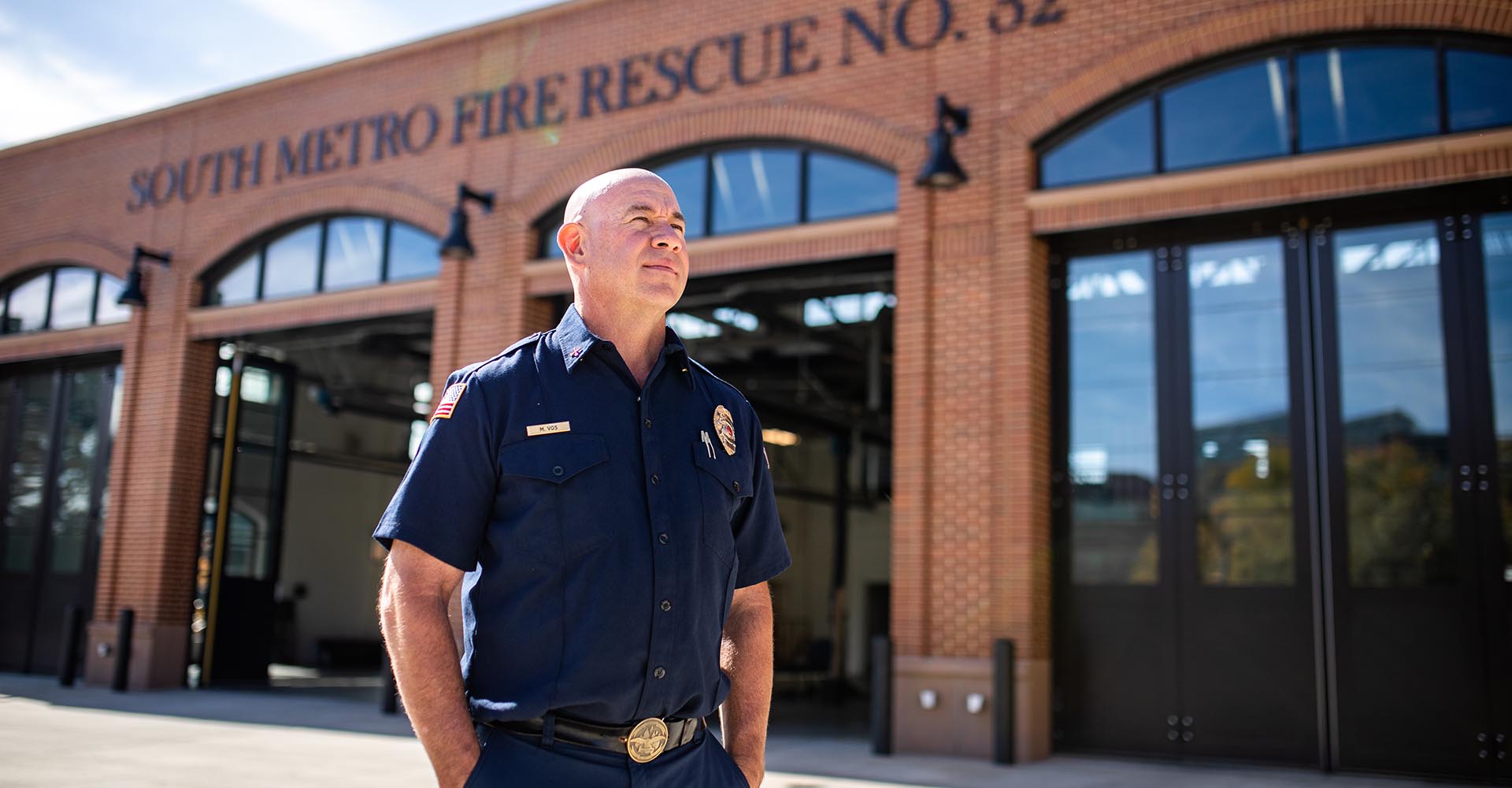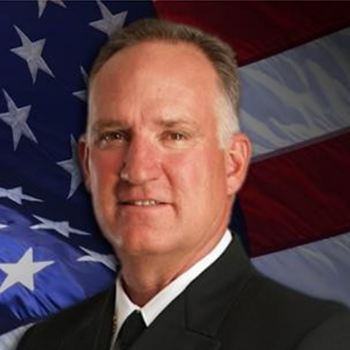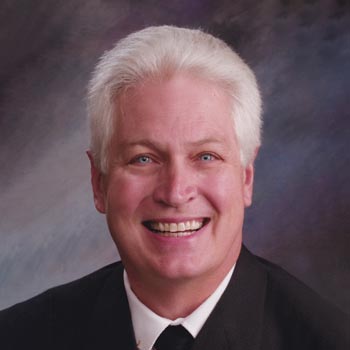
Michael Vos has spent much of the past three decades in firehouses, answering the call to help others. Now, the veteran firefighter is also spending time in the classroom at Metropolitan State University of Denver, where he’s working toward a bachelor’s degree that he hopes will help take his already- accomplished career to new heights.
Vos worked for Littleton Fire Rescue until 2019, when the department merged with South Metro Fire Rescue — a fire department that covers 300 square miles in Arapahoe, Douglas and Jefferson counties.
Littleton Fire Rescue didn’t require a college degree for the captain position he held in the department. But now, as the temporary battalion chief for South Metro Fire, Vos is enrolled in the University’s Fire and Emergency Response Administration (FERA) program to earn his degree, an achievement he hopes will help him become the full-time battalion chief. The department requires a college education for the position.
“The fire service is becoming a much more educated occupation than it was in the past,” said Vos, who is pictured above. “Thirty years ago, it was very blue-collar, and there wasn’t a whole lot of education required. It’s interesting because it’s still blue- collar in that we work with our hands, but the occupation has become much more education-driven.”
Like Vos, veteran firefighters in Colorado and across the country are returning to college to earn degrees that will help them advance in their careers, bolster their skills and prepare them for life after the fire service. Others are enrolling to build a foundation that will help them start a career in firefighting, said Brian Bagwell, Psy.D., an associate professor in MSU Denver’s Department of Human Services and FERA program coordinator.
“Some folks are (enrolling in college) because they have aspirations of promoting within their department,” Bagwell said. “Other firefighters know they are really one call away from an injury that can end their career. The education opens up some doors should they be injured or when they retire.”
For years, firefighters could rise in the ranks in their departments based on experience and training. But departments are increasingly requiring education, especially for leadership roles, that goes beyond “putting the wet stuff on the red stuff,” Bagwell said.
His program includes courses in administration, personnel development, disaster planning and control, incident management, and political and legal aspects of the profession. And demand for the degree is growing. When the FERA program launched in 2012, there was one class with 12 students in it, but now the program offers 10 classes a semester, with nearly 100 students enrolled.

A number of departments across the U.S., including South Metro Fire and Aurora Fire Rescue in Colorado, require at least a bachelor’s degree to promote to battalion chief or higher, Bagwell said. But even in departments that don’t have that requirement, seasoned firefighters are choosing to return to the classroom.
Take Kevin Vincel, for example. The South Adams County Fire Department chief enrolled at MSU Denver simply to further his education. Vincel, who earned an associate degree from Red Rocks Community College in 1999, graduated from MSU Denver’s FERA program in the spring. While he wrapped up his degree, Vincel juggled his coursework with running a 100-personnel fire department. Despite that challenge, Vincel said attending MSU Denver was worth the time and money he invested.
“As time evolves, education plays an important role,” said Vincel, who has 25 years of experience working as a firefighter. “The skills you can pick up in college researching and analyzing all play an important aspect of firefighting. Education is one of the most important aspects of the fire service.”
Having veteran firefighters on campus benefits not only those returning to finish their education but also students who hope to enter the profession.
Vos helped one of his classmates get a job with South Metro Fire Rescue and guided him through the hiring process.
“If they can get (a college degree) before they become firefighters, it’s so much easier than trying to do it while working,” said Vos, who works 56 hours a week while taking three classes. “The vast majority of students in my class are right out of high school. A lot of them are still living at home and going to school, and I think that’s the easiest way to go.”







